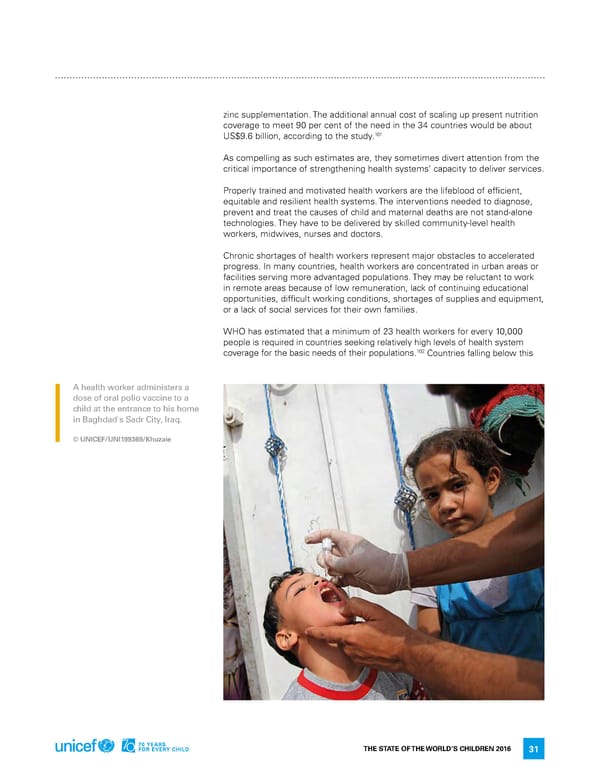zinc supplementation. The additional annual cost of scaling up present nutrition coverage to meet 90 per cent of the need in the 34 countries would be about US$9.6 billion, according to the study.101 as compelling as such estimates are, they sometimes divert attention from the critical importance of strengthening health systems’ capacity to deliver services. Properly trained and motivated health workers are the lifeblood of efficient, equitable and resilient health systems. The interventions needed to diagnose, prevent and treat the causes of child and maternal deaths are not stand-alone technologies. They have to be delivered by skilled community-level health workers, midwives, nurses and doctors. Chronic shortages of health workers represent major obstacles to accelerated progress. in many countries, health workers are concentrated in urban areas or facilities serving more advantaged populations. They may be reluctant to work in remote areas because of low remuneration, lack of continuing educational opportunities, difficult working conditions, shortages of supplies and equipment, or a lack of social services for their own families. Who has estimated that a minimum of 23 health workers for every 10,000 people is required in countries seeking relatively high levels of health system 102 coverage for the basic needs of their populations. Countries falling below this A health worker administers a dose of oral polio vaccine to a child at the entrance to his home in Baghdad's Sadr City, Iraq. © UNICEF/UNI199369/khuzaie The STaTe of The World’S Children 2016 31
 70 Years for Every Child Page 45 Page 47
70 Years for Every Child Page 45 Page 47